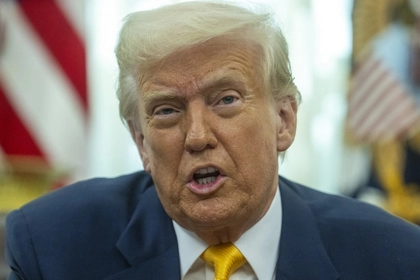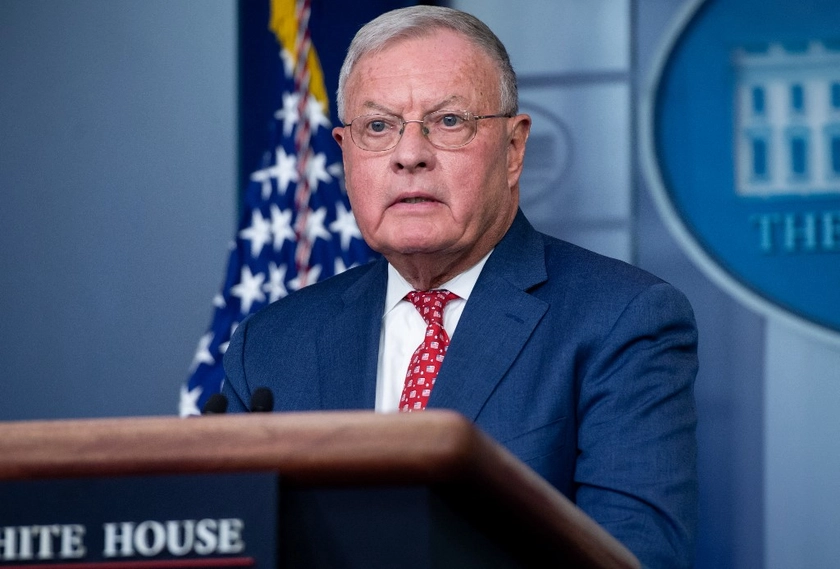On Monday, Feb. 3, Kyiv Post published the first part of its analysis of the consequences of Washington’s suspension of USAID projects for Ukraine. It touched on how more than 90% of this total assistance was directed toward the economic and infrastructure sectors, which are critically important for the Ukrainian economy as it fights a war for survival against Russia, which has more than four times Ukraine’s population and natural resources.
Smaller in terms of allocated funds, but no less important, is the cultural and political sector, particularly support for democracy, free media, and, importantly, the reputational loss for the United States and the potential involvement of direct US competitors in funding projects left unfinished.
Free media is the foundation of democracy
The allocation of funds for public and political activities, educational initiatives, and media is often criticized due to the difficulty of verifying and clearly measuring the effectiveness of these expenditures.
Of the 10% of total USAID assistance allocated to democracy support, almost all the funds were directed toward financing free media. Among the beneficiaries were leading anti-corruption investigative organizations in Ukraine, such as Bihus.info, which has published hundreds of investigations into officials, ministers, deputies at various levels, and even relatives of heads of state over the past 10 years.
However, the most crucial aspect is at the regional level.

Poll: Most Americans Disapprove of Trump and His Handling of the War in Ukraine, US Economy
“Regional media have always been at a disadvantage compared to national media. Simply because it is much more difficult to secure funding at the local level, or to achieve self-sufficiency through advertising, as advertisers prefer national media with greater reach,” says Oksana Romanyuk, director of the watchdog organization Detector.media.
The issue Romanyuk highlights runs deeper. Ukraine inherited from the USSR a network of regional TV channels and newspapers, which later developed websites, but their editorial policies remained loyal to local authorities since their funding directly depended on local budgets. As a result, many controversial and problematic regional issues were not covered by these media outlets.
Grant funding enabled the emergence and development of a whole generation of young and independent regional media outlets, free from financial and political influence. These media sources shed light on many aspects of regional life previously unknown to many Ukrainians. This included not only investigations into local corruption and power structures but also timely, high-quality reports on the course of hostilities, the consequences of Russian shelling, and other critical events.

Ukraine is the largest country in Europe by land area, and local journalists, who know their regions well, can often reach the scene of an incident much faster than central media representatives.
Among the recipients of such funding were Ukrainska Pravda and Ukraïner.*
America and Americans were perceived as trustworthy partners. But now, that is no longer the case.
Loss of soft power and trust. And yet, what some of Kyiv Post’s sources see as the greatest loss for the US is trust. The sudden suspension of already functioning programs and signed contracts has caused widespread disappointment.
“Everyone relied on the strength of American contract law. America and Americans were perceived as trustworthy partners – if they reached an agreement and signed a contract, it would be implemented. If we signed a contract in December for a year, we could count on it working until the following December. But now, that is no longer the case,” the director of a company that worked as a USAID contractor told Kyiv Post.
“It has reached the point – some foundations have scraped together their budgets, found available funds, and are ready to issue small grants to support media outlets that lost USAID funding. And do you know what they write? They explicitly reassure media outlets not to worry – ‘Attention, these are not American grants!’ This demonstrates how quickly trust has eroded,” Romanyuk adds.
Another significant issue is the loss of “America’s friends.” Participation in USAID programs, exposure to US experiences, and direct interaction with American representatives helped dismantle negative stereotypes about the US, which had been perpetuated by Soviet and later Russian propaganda. This shift in perception led to increased support for democratic reforms in Ukraine.
Now, according to multiple sources, China is preparing to step into infrastructure projects left without USAID funding.
“I have never received grants in my life. However I have personally witnessed the enormous contribution USAID has made in fostering bilateral relations at the grassroots level. I have seen countless times how attitudes toward the so-called ‘world’s policeman’ changed due to renovated schools, hospitals, kindergartens, new computer labs in rural schools, repaired bridges, and numerous social projects. China and Russia are already rubbing their hands in anticipation! If many consider the US withdrawal from Afghanistan a ‘nightmare and disgrace,’ then this senseless attack on the most effective pillar of American soft power is a hundred Afghanistans,” says former Deputy Minister for Temporarily Occupied Territories Georgy Tuka.
The prospect of Russian (through European intermediaries) and Chinese companies stepping in is not a distant one. According to Kyiv Post sources, Ukrainian energy sector leaders consider this a real threat.
“Chinese investment in Ukraine would be bad for both the US and Ukraine – not just politically. I worked in Africa, and I saw firsthand what happens when Chinese money arrives. It leads to dependency, and ultimately, poverty and problems. This would be a much worse scenario,” says Anatoliy Tkachuk, former advisor to the President of Ukraine and one of the architects of Ukraine’s decentralization reform.

*Expanded (though not exhaustive) list of USAID funding recipients: the Mykolaiv Center for Investigative Journalism, Bakhmut Fortress, Makes Sense, Fourth Power Investigative Journalism Agency, Investigation.Info, Liberation of Crimea, Internews-Ukraine, Public Television, Kherson Regional Agency for Public Journalism “MIST,” Center for Public Investigations, Ukrainska Pravda, Kharkiv Press Club of Market Reforms, Institute for Regional Press Development, Ternopil Press Club, Public Radio, Volyn Press Club, LigaBusinessInform, Ukrainian Television Toronto, Power of Truth Investigative Journalism Center, Velikiy Lug Radio Station, Slobidskyi Krai, Babel, Ukrainian Media Initiative, Tribune, Media-Poglyad, Association of Independent Regional Publishers of Ukraine, “Frontyr,” “Nikolaevskie Novosti,” “ZMI-NI Kryvyi Rih,” “IA Bilyayivka.Info,” “Cherkasy Information Agency 18000,” “Publishing House E,” “Kharkiv Crisis Info Center,” “Mobile News Service,” “Kramatorsk Post,” “TVA Television and Radio Company,” “Zakhid.net,” “Severodonetsk Online,” “Icebreaker,” “Media Community of Zaporizhzhia,” “We are Reporters,” “Vinnytsia Press Club,” “Ukraine Moloda,” “Eastern Variant,” “Skyscraper,” “Gvara Media,” “Ukraïner.”
You can also highlight the text and press Ctrl + Enter












